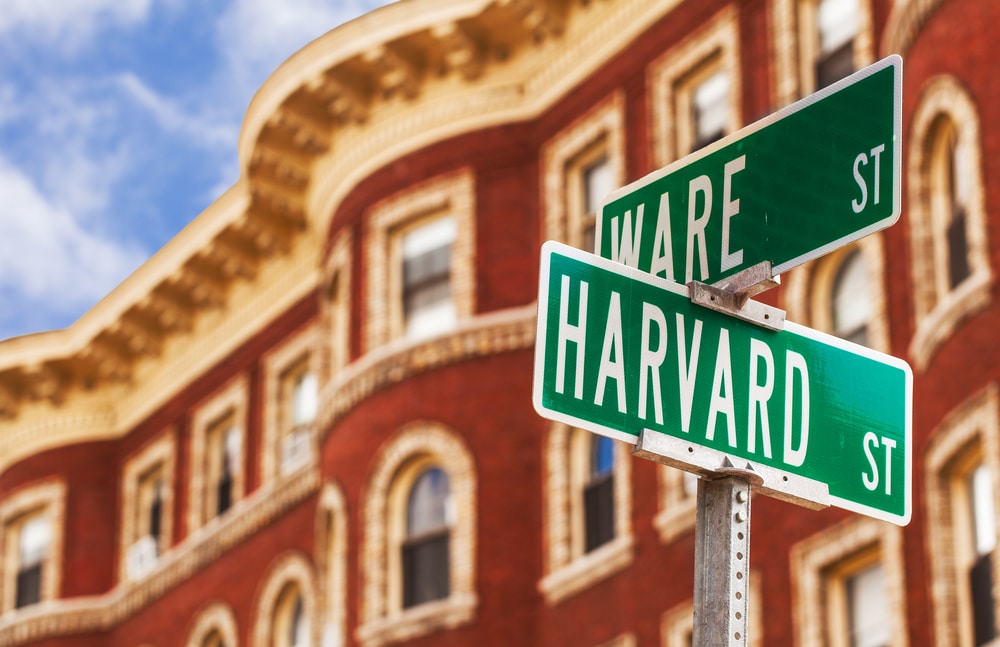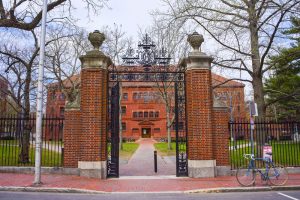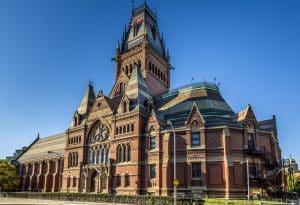What Major is Harvard Known For?
What is Harvard University?
Harvard University, founded in 1636, is one of the world’s most prestigious and respected institutions of higher education. With its rich history, diverse student body, and commitment to academic excellence, Harvard has established itself as a leader in various fields of study. As prestigious as this university is, the question becomes, “what major is Harvard known for?”
Choosing a major is a significant decision for any student, as it lays the groundwork for their future career path and influences the skills and knowledge they will acquire at university. Exploring Harvard’s known majors is essential for prospective students who wish to make an informed choice about their academic pursuits and those interested in understanding the factors that contribute to the university’s esteemed reputation.
By delving into the renowned majors offered at Harvard, one can gain insight into the depth and breadth of the institution’s educational offerings, which have produced numerous influential scholars, leaders, and innovators throughout history.
Harvard’s history and academic reputation
Harvard’s storied history and academic reputation can be traced back to its foundation in 1636, making it the oldest university in the United States. Established to educate clergy and perpetuate knowledge, Harvard has evolved over the centuries, growing and developing to meet the needs of an ever-changing world.
As the university expanded its curriculum, facilities, and research initiatives, it garnered a global reputation for fostering academic excellence and intellectual curiosity. Throughout its rich history, Harvard has been the recipient of numerous achievements and accolades, including the distinction of having produced 160 Nobel laureates, 32 heads of state, and countless leaders in various fields.
These accomplishments are a testament to Harvard’s enduring commitment to fostering intellectual growth, nurturing groundbreaking research, and cultivating a community of scholars that consistently push the boundaries of human knowledge and understanding.
Major fields of study at Harvard
Harvard University offers an extensive range of major fields of study, spanning various academic disciplines and catering to diverse interests and career aspirations. With a dedication to providing a comprehensive and rigorous education, Harvard’s curriculum is designed to foster critical thinking, creativity, and intellectual growth among its students. For that reason, more people are interested in studying at Harvard.
Those who want to know what major is Harvard known for should note that the university is home to more than 50 undergraduate concentrations and over 260 graduate and professional degree programs. This encompasses the humanities, social sciences, natural sciences, engineering, business, law, medicine, and other specialized areas of study. This broad spectrum of academic offerings ensures that students can find their niche and excel in their chosen field, benefiting from this esteemed institution’s wealth of knowledge and resources.
Harvard’s commitment to a well-rounded and interdisciplinary education encourages students to explore multiple areas of interest, deepening their understanding of the world and the complex challenges it presents.
Top Harvard degree programs
Economics
Economics is one of the most renowned Harvard degree programs, known for its rigorous curriculum, exceptional faculty, and significant contributions its alumni have made to the field. Harvard’s economics department has produced many prominent alumni who have achieved extraordinary success in academia, public policy, and private sector roles. Making it one of the frequent answers people give when asked what major is Harvard known for.
Among them are notable figures such as John F. Kennedy, Ben Bernanke, Janet Yellen, and Larry Summers, who have played pivotal roles in shaping the global economic landscape. Beyond its accomplished alumni, Harvard’s economics program has made substantial contributions to the field through groundbreaking research and innovative theories.
The university has been home to several Nobel laureates in economics, including Kenneth Arrow, Paul Samuelson, and Amartya Sen, whose work has transformed our understanding of economic behavior, welfare, and development. By fostering an environment that encourages analytical thinking, research, and real-world application, Harvard’s economics major has consistently produced influential economists, policy-makers, and thought leaders who have left a mark on the world of economics.
Government and Political Science
Another program that pops up when learning what major is Harvard known for is its Government and Political Science program. Harvard University’s Government and Political Science major is another area of study for which the institution is renowned, having produced a long list of prominent alumni who have shaped national and international politics.
Graduates from this program have occupied influential roles as heads of state, diplomats, and policy advisors, with names such as Barack Obama, Theodore Roosevelt, and Ban Ki-moon standing as just a few examples of the exceptional political figures who have emerged from Harvard’s hallowed halls.
The university’s impact on global policy and governance extends beyond its accomplished alumni; it also derives from the research and scholarship produced by its esteemed faculty and students. Harvard’s John F. Kennedy School of Government, in particular, has been instrumental in advancing the understanding of pressing global issues and providing policy recommendations that guide decision-makers worldwide.
By cultivating a deep understanding of the complexities of politics, governance, and international relations, Harvard’s Government and Political Science major equip its graduates with the knowledge and skills needed to navigate global policy’s intricate landscape and effect meaningful change in the world.
Law
Harvard Law School, known as one of the world’s most prestigious and respected law schools, has long been a pillar of excellence in legal education. Its renowned status is attributed to its rigorous curriculum, esteemed faculty, and the significant contributions its alumni have made within the legal profession and the judiciary.
Harvard Law School has produced an impressive roster of prominent alumni, including six Supreme Court Justices, such as Ruth Bader Ginsburg and Chief Justice John Roberts, and countless other influential figures in law, government, and civil rights, including Thurgood Marshall and Michelle Obama. These accomplished alumni have played a critical role in shaping the legal landscape, arguing landmark cases, developing innovative legal theories, and advocating for justice and equality.
Harvard Law School’s commitment to producing exceptional legal minds, fostering academic inquiry, and instilling a sense of civic responsibility in its students has solidified its position as a leading institution for legal education, consistently producing graduates who excel in their careers and contribute meaningfully to the legal profession and society as a whole. With all that in mind, it is no wonder this degree program pops up in discussions when learning what major is Harvard known for.
Biology and Medical Sciences
Harvard University’s excellence in the fields of Biology and Medical Sciences is demonstrated through its cutting-edge research, groundbreaking innovations, and the achievements of its distinguished alumni. Harvard Medical School (HMS) consistently ranks among the top medical schools globally, renowned for its rigorous curriculum, world-class faculty, and robust research programs.
HMS is at the forefront of biomedical research, spearheading advancements in areas such as genomics, neuroscience, and stem cell biology, which have far-reaching implications for understanding and treating various diseases and conditions.
Prominent alumni from Harvard’s biology and medical programs have made substantial contributions to medicine and the life sciences, including figures like Dr. George Minot, who received the Nobel Prize for his work on pernicious anemia, and Dr. Sidney Farber, a pioneer in cancer research and chemotherapy.
Harvard’s commitment to fostering scientific inquiry and innovation has positioned it as a leader in the biological and medical sciences, producing generations of researchers, physicians, and life scientists who have shaped the trajectory of modern medicine and improved the lives of countless individuals worldwide.
Computer Science and Engineering
In recent years, Harvard University has made significant strides in Computer Science and Engineering, becoming a leading institution for students pursuing careers in technology and innovation.
Harvard’s commitment to the growth of these programs is evident in the ongoing expansion of its curriculum, the construction of state-of-the-art facilities like the Science and Engineering Complex, and the establishment of interdisciplinary research centers such as the Harvard John A. Paulson School of Engineering and Applied Sciences.
This dedication has resulted in a surge of interest and investment in technology and engineering at the university, attracting world-class faculty and students alike. This puts this program as a search result when people search on what major is Harvard known for. Harvard’s computer science and engineering programs have produced numerous prominent alumni who have substantially contributed to the technology industry.
Notable figures include Mark Zuckerberg, the founder of Facebook; Steve Ballmer, former CEO of Microsoft; and Jeremy Allaire, the CEO of Circle, a leading fintech company. By fostering an environment that encourages innovation, collaboration, and entrepreneurial spirit, Harvard’s computer science and engineering programs have not only contributed to advancing technology. Still, they have also played a pivotal role in shaping the digital landscape and the future of human interaction.
Now that you have an idea about Harvard University, your college admissions into that university should be next in your mind. To ensure that you get into Harvard, you can get help with AdmissionSight. With ten years of experience with college admission experts, AdmissionSight can help you get into Harvard University. You can talk to our experts today to get an initial consultation.







































